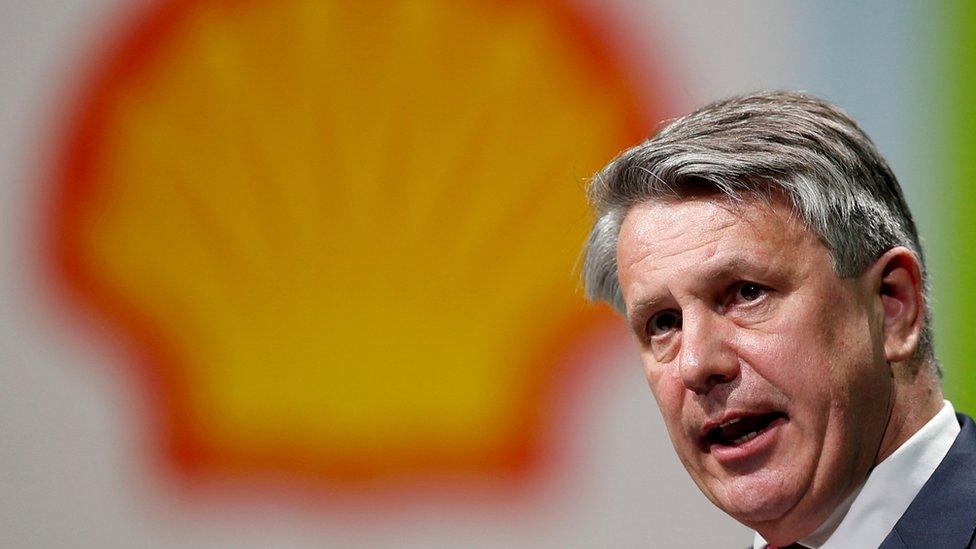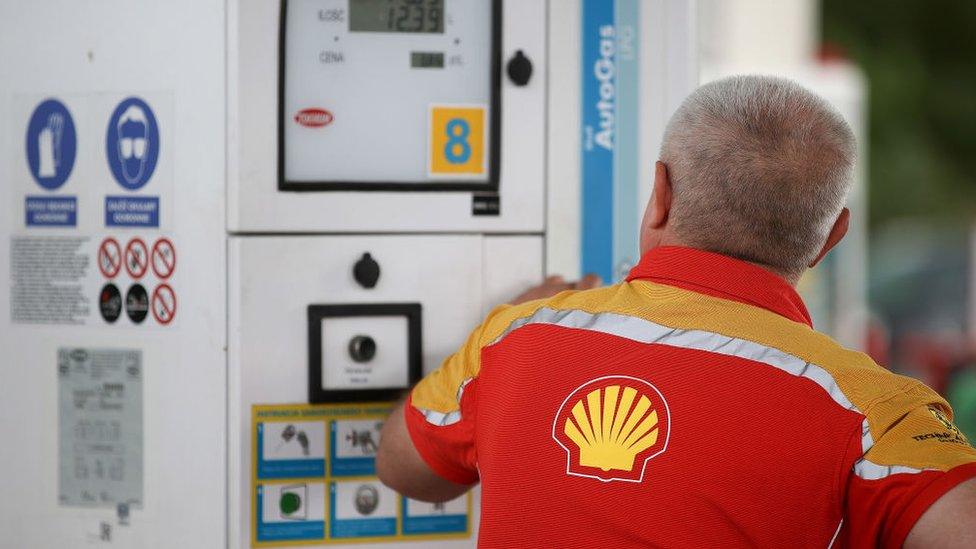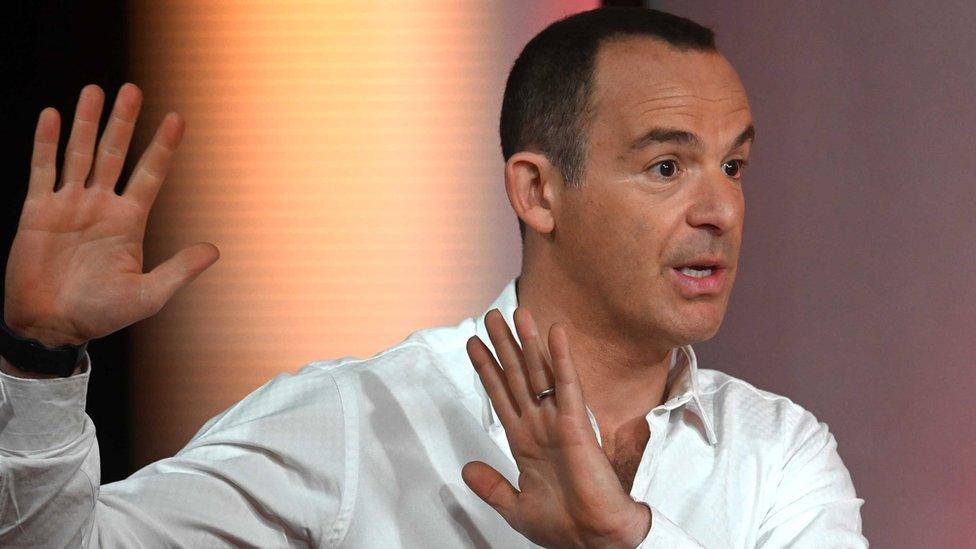Oil giant Shell appoints renewables head as boss
- Published

Shell is to replace its current boss Ben van Beurden with its head of gas and renewables, the oil giant has said.
Mr van Beurden will to step down at the end of 2022, and be replaced by Wael Sawan.
Mr Sawan, a duel Lebanese-Canadian national who previously led Shell's oil and gas production business, was seen as a favourite to take the top job.
He now oversees Shell's growth into low carbon energies as well as its giant gas business.
Mr Sawan said he would "grasp the opportunities presented by the energy transition".
"We will be disciplined and value focused as we work with our customers and partners to deliver the reliable, affordable and cleaner energy the world needs," he said.
Shell's chairman, Sir Andrew Mackenzie, said Mr van Beurden had "been in the vanguard for the transition of Shell to a net-zero emissions energy business by 2050 and has become a leading industry voice on some of the most important issues affecting society".
Mr van Beurden was in charge when Shell bought gas giant BG Group for £36bn in 2015, and when the firm moved its headquarters to London earlier this year.
He also oversaw Shell's commitment to reduce oil production and cut emissions by 2050.


Ben van Beurden spent his entire career at Shell and was chief executive for the last nine years.
His lasting legacy will be the acquisition of gas giant BG group for $52bn (£36bn) in 2015.
This turbocharged Shell's gas and LNG business just before many nations decided that gas would be their transition fuel between coal and greener alternatives, creating bumper profits for the group that delighted shareholders and scandalised activists and some politicians.
Mr van Beurden also set the oil giant on its transformation from an oil and gas company to an energy company, with a long-term focus on becoming a carbon neutral company by 2050.
But he was always very clear that the money to fund this transition would come from a hydrocarbons business that the world economy would need for decades to come.
A couple of years ago this position had some shareholders fearing he was off-message, and behind the zeitgeist, but the current crisis and the international scramble for gas to replace Russian supplies left him looking right and the company in a very strong position.

Sophie Lund-Yates, lead equity analyst at Hargreaves Lansdown, said Mr Sawan's appointment was a "clear marker" that the company intends to change its "somewhat vague, though grand sounding" renewables strategy.
"Change won't happen overnight, but it's reasonable to think that at least tweaks to the existing renewable strategy could be on the cards," she said.
The public is "very sensitive surrounding allegations of profiteering and environmental damage" at the moment, she said, but for investors dividends would take precedence over renewables strategy.
Under Mr van Beurden the oil giant has been criticised for its environmental record.
Last year, a court in the Netherlands ruled that Shell had to reduce its carbon dioxide emissions, saying that by 2030 they must be cut by 45% compared to 2019 levels.
Friends of the Earth, one of the environmental groups that brought the case, said: "Shell is causing dangerous climate change and must now stop it quickly."
Shell filed its appeal against the ruling in March this year, with Mr van Beurden previously saying that Shell should not be responsible for reducing its customers' emissions.
In May this year, safety consultant Caroline Dennett stopped working for Shell, saying she could "no longer work for a company that ignores all the alarms and dismisses the risks of climate change and ecological collapse".
She added that Shell was "not winding down on oil and gas, but planning to explore and extract much more".
Ben van Beurden spoke to the BBC last year about Shell's transition to net zero
- Published4 August 2022

- Published2 August 2022

- Published28 July 2022
